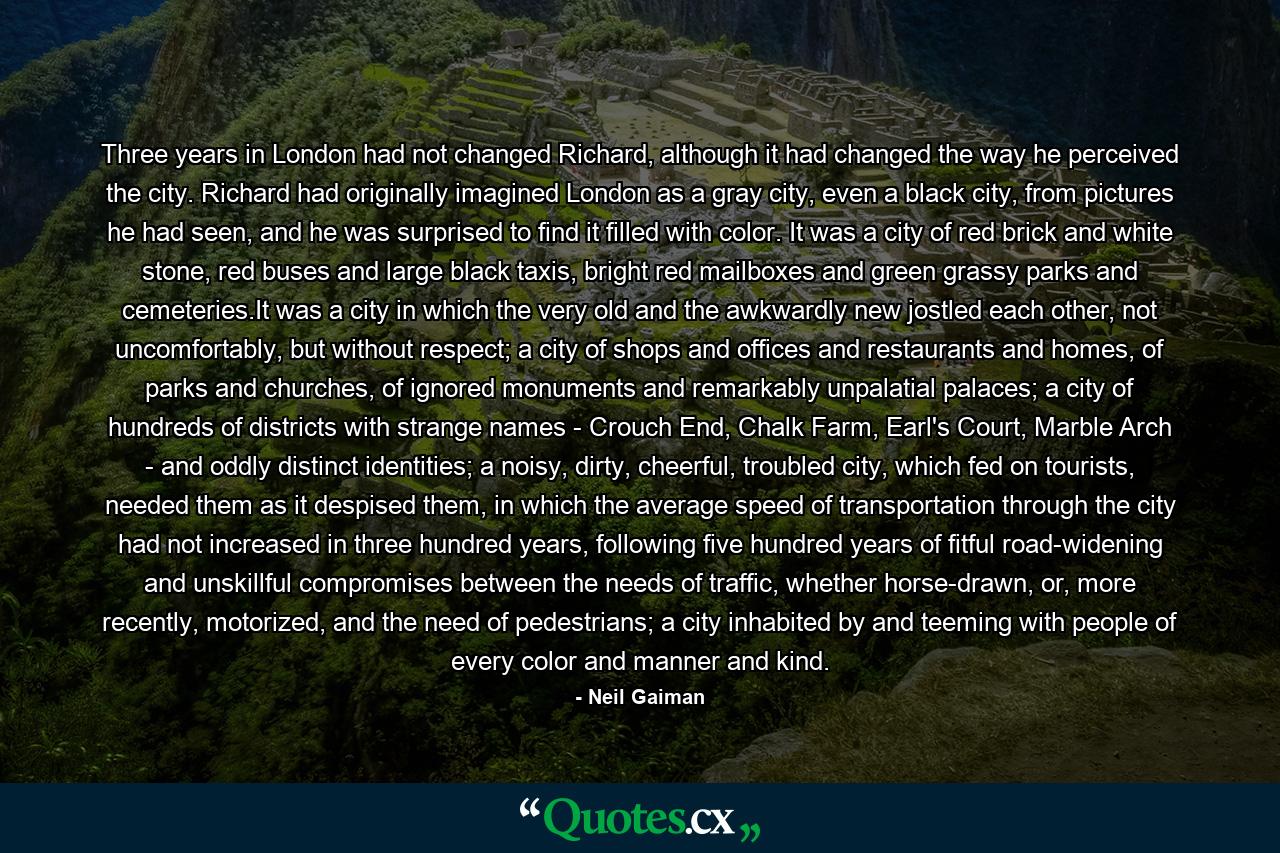Three years in London had not changed Richard, although it had changed the way he perceived the city. Richard had originally imagined London as a gray city, even a black city, from pictures he had seen, and he was surprised to find it filled with color. It was a city of red brick and white stone, red buses and large black taxis, bright red mailboxes and green grassy parks and cemeteries.It was a city in which the very old and the awkwardly new jostled each other, not uncomfortably, but without respect; a city of shops and offices and restaurants and homes, of parks and churches, of ignored monuments and remarkably unpalatial palaces; a city of hundreds of districts with strange names – Crouch End, Chalk Farm, Earl’s Court, Marble Arch – and oddly distinct identities; a noisy, dirty, cheerful, troubled city, which fed on tourists, needed them as it despised them, in which the average speed of transportation through the city had not increased in three hundred years, following five hundred years of fitful road-widening and unskillful compromises between the needs of traffic, whether horse-drawn, or, more recently, motorized, and the need of pedestrians; a city inhabited by and teeming with people of every color and manner and kind.
